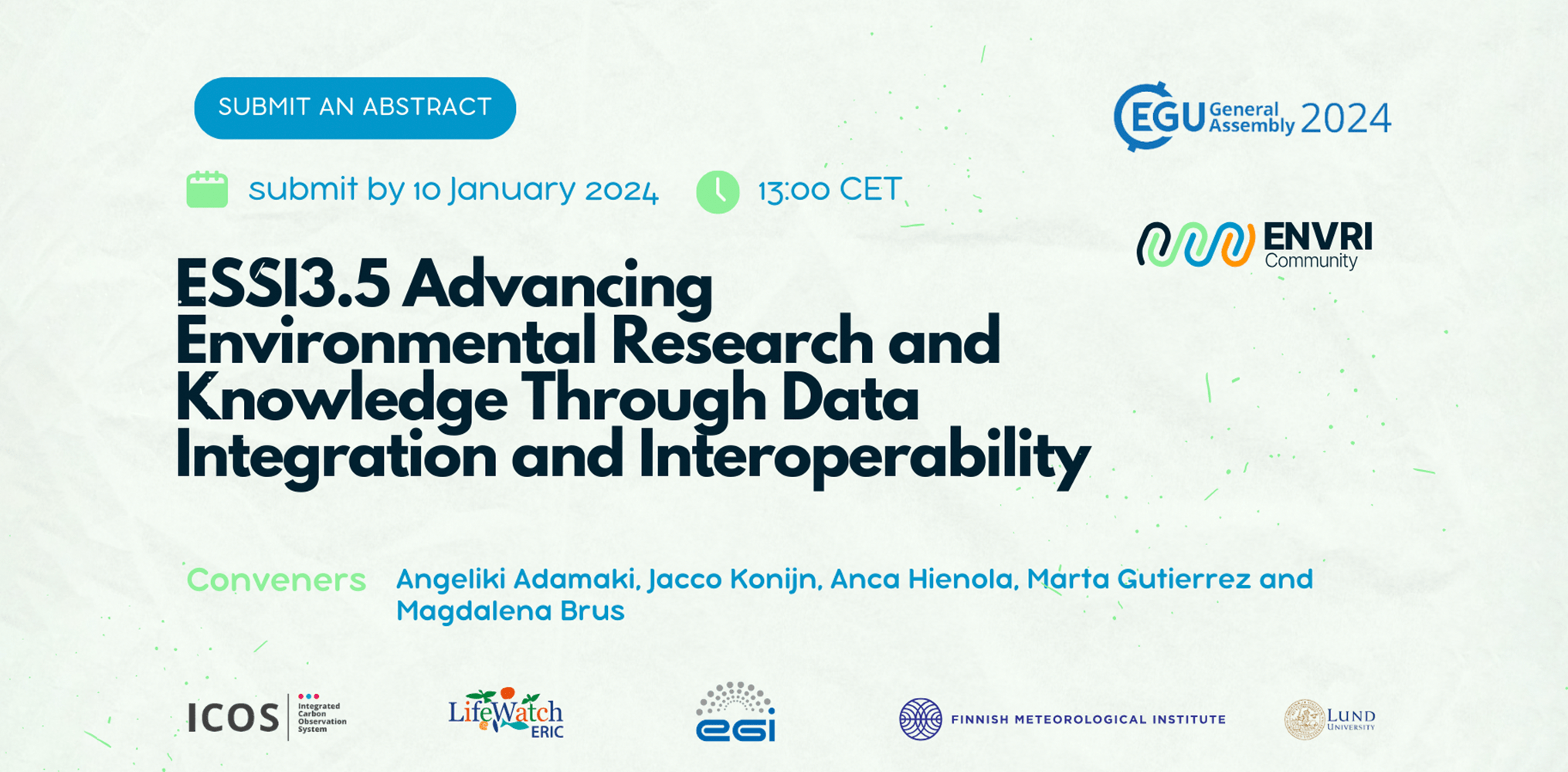
LifeWatch ERIC, in collaboration with EGI and other ENVRI Research Infrastructures, has organised two sessions in the upcoming European Geosciences Union 2024 (EGU) conference in Vienna from April 14-19, 2024.
Call for abstract: tell us how Research Infrastructures helped with your research
The first session will bring together researchers in environment and climate to foster collaboration and knowledge sharing. Researchers come from the atmosphere, marine, biodiversity, ecosystems, and solid earth domains. Besides, it involves data product developers, data scientists, and -engineers.
The session aims to share insights and real-world examples of Research Infrastructure that helped research or scientific development projects. If you:
- used data analytics and visualisation to make data-driven discoveries;
- demonstrated data collection and quality control expertise;
- utilised infrastructures and cloud services to expedite your research;
Or overcome data access challenges, we want to hear about your experience. Contribute to the discussion on how Research Infrastructures contribute to doing science! You can participate in the session by submitting abstracts for oral or poster presentations. For more information, please visit this page. Please submit your contribution by 10 January 2024 at 13.00 CET.
A deep dive into data integration, Virtual Research Environments and more.
In the second session, we will conduct a training course that brings together environmental researchers, data developers, scientists, and engineers. This course provides practical and hands-on opportunities to enhance your understanding of data integration, Virtual Research Environments (VREs), web services, and their significance in environmental science. The course will also address the challenges faced while customising and running data workflows on the cloud using Jupyter Notebooks, which are time-consuming and complex processes. Participants will learn about the key technologies for notebook containerisation, workflow composition, and cloud automation in a Jupyter notebook-based VRE. We will also guide attendees to explore science cases in ecology and biodiversity virtual labs, making it a comprehensive and practical learning experience.